empathy

“The problem with the meritocracy ... [is that it] leeches all the empathy out of your society.”
The right-wing political commentator Tucker Carlson said that back in 2017 and, by my lights, there’s a kernel of truth there. It almost echoes the early 20th-century sociologist Max Weber’s critique of the Protestant work ethic, how Americans are trained to see wealth as a just reward for living a good life and poverty as punishment for living a bad one; an economic spin on Calvinism. Even if you think Carlson is a reactionary grifter (which I do), I think he’s onto something here.
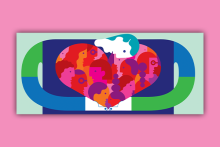
ON THE THIRD day of President Donald J. Trump’s second term, I saw a tweet that assaulted my spirit. A Utah church deacon and self-described “Christian husband and father” named Ben Garrett went viral for posting a picture of the Episcopal bishop of Washington, D.C., Rev. Mariann Edgar Budde, with the following caption: “Do not commit the sin of empathy. This snake is God’s enemy and yours too. She hates God and His people. You need to properly hate in response. She is not merely deceived but a deceiver. Your eye shall not pity.”
The day before, Budde had preached a pastoral and prophetic sermon at the inaugural prayer service for Trump and Vice President J.D. Vance. She made a direct plea to President Trump to “have mercy upon the people in our country who are scared now” — specifically naming transgender and undocumented children who feared what the new administration would mean for them. Garrett’s tweet — which received almost 5,000 likes and nearly 24 million views — was a rebuke of Bishop Budde’s call to have empathy toward two groups of people who Trump and his supporters have consistently demonized, attacked, and marginalized.
When I researched the phrase “the sin of empathy,” I was led to some right-wing Christian influencers and writers, whose arguments often boil down to the old directive to “love the sinner, hate the sin.” Far too often, I’ve found this to be a mere pretext to act against individuals and groups in fear- and hate-driven ways that can result in violence. Empathy doesn’t mean you have to agree with someone’s choices or perspective. Instead, it enables us to get more proximate to people’s pain and perspective as we honor the image of God that is within every person.
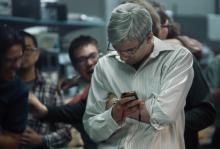
Capitalist Cautionary Tale
BlackBerry highlights the role of greed in capitalism through the story of the rise of the BlackBerry smartphone. The film, which transports us to a time when smartphones weren’t omnipresent fixtures in our lives, shows the danger of valuing innovation more than ethics.
Elevation Pictures
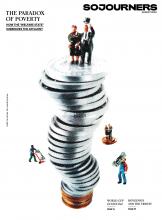
How the “welfare state” is designed to subsidize affluence rather than fight poverty.

Children of the Underground
After seeing the courts return many children to allegedly abusive fathers, Faye Yager created an underground network that hid hundreds of mothers and children. The five-part docuseries Children of the Underground shows the moral complexity of Yager’s vigilante justice. Hulu/FX

Novelist Edwidge Danticat expressed a similar sentiment in Create Dangerously, her 2010 memoir about making art in exile. Reflecting on the aftermath of the earthquake that had struck her home country of Haiti that year, she wrote, “I did what I always do when my own words fail me. I read.” We share this human practice of story sharing and story seeking. Danticat writes of her “desire to tell some of [her] stories in a collaged manner, to merge [her] own narratives with the oral and written narratives of others.” Through the transformative power of creating and remembering, we connect to the threads of humanity, discovering the woven patterns that are formed through our stories.
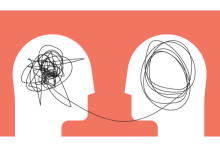
If the empathy debate teaches us anything, it’s that for all its power, empathy on its own will not solve our problems.

This film tells the story of Bryon Widner's exit from white supremacy and how love redeemed his life.

The stark contrast in media coverage and social concern reveals the deep and isolated silos which humanity can and chooses to abide within, magnifying the complex avenues of empathy and sympathy while examining the enactment of independent agencies to ensure certain spaces and structures are protected or resurrected.
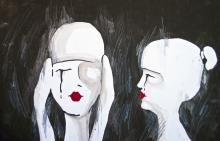
As humans, we have an innate desire to see and understand. We want to feign comprehension, in order to avoid the despair of our limited understanding. I’ve noticed this phenomenon recently in what started as a personal experience. I was born with a rare genetic condition that causes my skin to blister much more easily than the average person. It is my normal. There are not many people on the planet who can actually understand. However, this has not stopped countless people from trying to convince me they do.
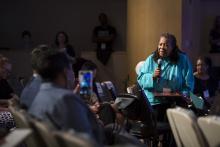
You listen to her tell the story — then listen to her tell it again
You want to learn her story by heart so you never forget
what she told that interviewer about the time she was arrested
for protesting — when she was just seventeen.

Just how religion plays into our biological impulse for empathy is not yet clear. One study from the University of Chicago shows that religious upbringing is associated with less altruism. Other studies have shown the contrary; a University of Warsaw study found that religious beliefs are positively associated with empathy, as empathic skills are crucial factors for religion.

1. Let’s start with this — if you are not a person who ethnically identifies as black (truly black — please miss me entirely with any Rachel Dolezal references), you cannot use the N-word. Not in a song. Not ever. I am not going to apologize for this. I am not going to engage in conversations about “rights” as it relates to freedom of speech. You do not have the right to comment on how this word is used by black people within the black community. This word has been bought and paid for through the hundreds of thousands of bodies/lives. I fully recognize that entitlement doesn’t ever want to be told what it can and cannot hold. But entitlement has blood on its hands that it has not yet truly begun to atone for, so I want to say this (and please hear me): This word does not belong to you.

More than 50 years later, California still lists lethal gas as a legal execution means. So do five other states: Arizona, Mississippi, Missouri, Oklahoma, and Wyoming, although Mississippi and Oklahoma, which use nitrogen hypoxia, don’t use that term. (More on that below). I learned this as I searched on my phone standing in front of John Singer Sargent’s monumental 1919 painting “Gassed,” which is on display in the New-York Historical Society’s exhibition “World War I Beyond the Trenches” (through Sept. 3).

Everyone deserves our love, especially those whom the “religious” people deem unworthy — tax collectors, Samaritans, lepers, the homeless, the beggars, the sick, the mentally ill, the despairing.

In Guardians of the Galaxy Vol. 2, out this weekend, Peter Quill (Chris Pratt), Gamora (Zoe Saldana), Drax (Dave Bautista), Rocket, (Bradley Cooper) and Groot, (Vin Diesel) are still learning lessons in openness and humility. But oddly, the film they’re in needs help maintaining emotional honesty, too. Where the first movie kept a fine balance of pathos and jokes, the second Guardians film is almost caustically cynical. The film is so preoccupied with witty banter that it misses nearly every opportunity to plumb the depths of the themes it presents, until finally pulling it together at the very end.

My primary medium is portrait photography, and during my sessions I draw people out by asking questions about their very literal story. What is delightful for you in this season? What is hard? What I’ve found happen in these conversations is that decades of untended pain or suppressed pleasures begin to break forth, find air, and heal as needed or grow.
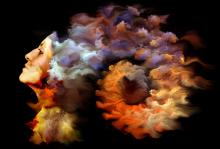
Here is the power of story: to make people pay attention and be fully present. The only irony is they are fully present in a story that is not their own. We weep for a Dumbledore who never lived, thrill at a first kiss that wasn't ours, and experience the terror of being chased by a psychotic killer while safely resting a theater seat.
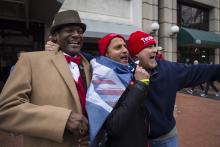
America is beautiful because we have the power to define what it means to be American.
Too often, we immigrants define what is "American" by what white culture tells us it should be. We internalize colonialism and let it run thickly in our veins: We give our offspring English names because we’re embarrassed of our language, or afraid that our children won’t be accepted with anything too “exotic.” We eagerly give up a culture that so proudly raised us. I’ve watched as we villainize black people and turn our backs on undocumented immigrants.
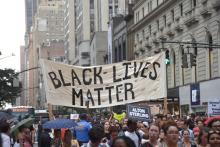
On Nov. 15 the Black Lives Matter Global Network released a statement on the election of Donald Trump, reports Mic. The organization stated that what remains true — and was proven by the results of the 2016 U.S. presidential election — is that “when black people and women build power, white people become resentful.”